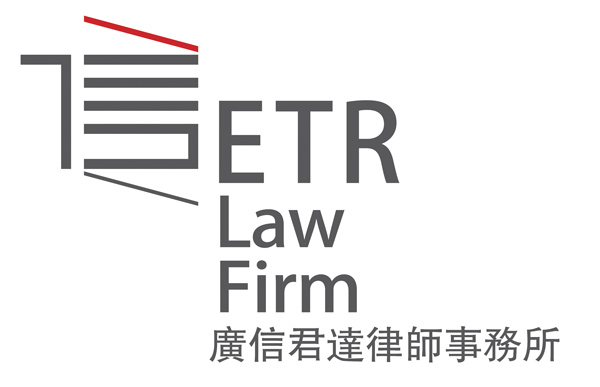With the accelerated innovation of intelligent and interconnected information technology and the digital economy’s speedy development, many online disputes are resolved through online arbitration. The importance of electronic evidence in online arbitration cannot be overstated, with the evidence preservation system being the core element. Compared with conventional arbitration, electronic evidence is the only type that can be used in online arbitration. The evidence preservation system has an essential role where electronic evidence is likely to be lost or difficult to obtain.

Senior Partner
ETR Law Firm
In the pre-digital economy, conventional methods of safeguarding evidence relied on the judiciary and the notary system. Although, in theory, there is a debate on the effectiveness of notarisation, in practice, evidence saved by this method is more convincing than evidence that has not been notarised.
Many online disputes in the digital economy have given rise to many third-party notary platforms, impacting the conventional judicial and notary systems. Standards already exist for determining the authenticity of electronic evidence in litigation proceedings. However, there is still a lack of relevant regulation in online arbitration, and this article focuses on determining the authenticity of evidence on third-party notary platforms.
Third-party platforms are centred on providing data technology, supported by cryptography, with hash verification, electronic signatures, trusted time stamps and technologies such as blockchain being used to store evidence. For electronic data stored on a blockchain to be tamper-proof. In practice, the National Time Service Centre of the Chinese Academy of Sciences is the only institution maintaining the time in China and has a high level of authority in providing trusted time stamps to store evidence. The platforms that use blockchain technology for evidence storage include Baoquan.com, eBao.com, IP360 and other platforms. Some of these platforms co-operate with judicial authorities, enabling them to directly obtain electronic evidence from the platform through an interface without any party having to download and submit it.

Lecturer
Guangzhou Business School Law School
Litigation regime recognises the authenticity of evidence from third-party notary platforms. For the first time, the new Rules of Evidence recognise, by way of presumption, evidence of electronic data provided or confirmed by a neutral third party who records and maintains the information. However, when determining evidence stored by the third party in litigation, the court may exercise its discretion to deny its authenticity if there is “sufficient evidence to the contrary”. In theory, some scholars have supported the new rules with the reason that third-party platforms focus on providing a tamper-proof location to ensure authenticity of electronic data, but when parties need to “take” evidence, the platform is more of a witness system. Therefore, in terms of effectiveness, the introduction of notarisation or identification measures for credit enhancement is necessary, while the judiciary also needs to examine the authenticity of such electronic data by corroborating it with other evidence, checking its integrity, the credibility of the platform and, if necessary, by conducting an inspection.
Standards for determining the authenticity of evidence from third-party notary platforms in online arbitration. The types of evidence stored for online commercial arbitration are all electronic data. Firstly, some commercial arbitration institutions have entered into co-operation agreements with third-party evidence storage platforms. In some cases, electronic data evidence is not extracted by the parties, but rather by the institution directly from the platform via an interface during the dispute resolution process. Although arbitral institutions do not deny the validity of electronic data evidence notarised and preserved by a notary office, to a certain extent, third-party platforms weaken the reliance on the notary office for electronic evidence storage in online commercial arbitration disputes. When hearing evidence, arbitral tribunals consider that the third-party platform differs from the traditional witnessing system because the evidence is extracted directly from the third-party platform via an interface rather than being “taken” by any party. For online commercial arbitration, pre-litigation electronic evidence is fixed and tamper-proof through a third-party evidence storage platform to safeguard its authenticity, which greatly weakens the ability of conventional notary offices to store evidence and judicial intervention to safeguard it. Moreover, as a civil dispute resolution mechanism distinct from litigation, arbitration, by its very nature, does not necessarily follow the evidence system under litigation proceedings, but instead has a greater need to reflect the value of efficiency.
In the author’s view, the new Rules of Evidence generally regulate litigation proceedings and cannot be directly applied to online commercial arbitration. Although internet courts and online commercial arbitration can also rely on third-party evidence storage platforms using blockchain technology to secure electronic evidence and ensure its authenticity.
However, in terms of recognising the authenticity of electronic evidence, the online commercial arbitration electronic data evidence system does not necessarily follow the harsh provisions of articles 93 and 94 of the new Rules of Evidence, but should be more liberal. Specifically, online commercial arbitration could draw on and follow the new Rules of Evidence in respect of the evidence storage system, recognising the authenticity of evidence from third-party platforms but leaving more discretion to the arbitral tribunal as to whether it needs to meet the “sufficient evidence to the contrary” standard or be less strict.
Chen Xue’er is a lecturer at the Guangzhou Business School Law School, and Jeffrey Quan is a senior partner at ETR Law Firm. Su Yuguo, a partner at Lawsons Law Office, also contributed to this article.

10 & 29/F, Chow Tai Fook Finance Centre
No. 6 Zhujiang Dong Road
Guangzhou 510623, China
Tel: +86 20 3718 1333
Fax: +86 20 3718 1388
Email:
etr@etrlawfirm.com




























